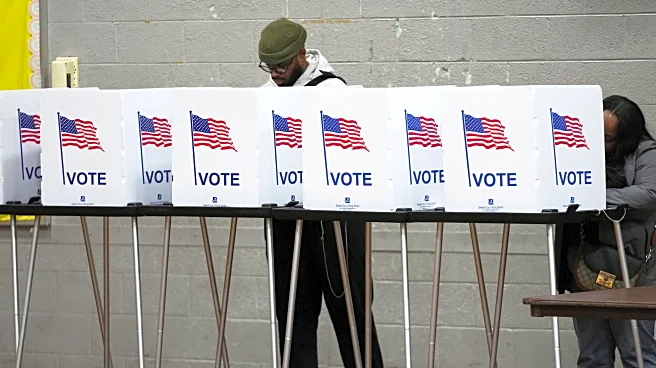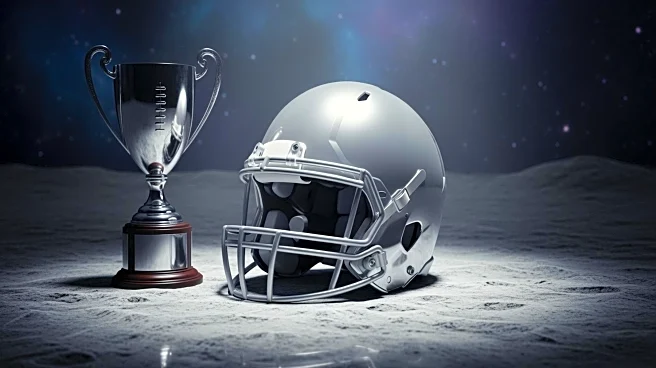What's Happening?
Bobby Farrelly's latest film, 'Driver's Ed,' attempts to capture the essence of 90s teen comedies but falls short of reviving the genre's former glory. The film, written by Thomas Moffett, is set in the present day but heavily leans on past sensibilities, making it feel outdated. The plot follows Jeremy, a high school senior, who impulsively decides to drive to his girlfriend's college with three classmates in tow. Despite the film's attempt to blend nostalgia with modern elements, it fails to deliver the humor and edginess that characterized Farrelly's earlier works like 'There's Something About Mary.' The film's humor is described as tame, with predictable jokes and scenarios that lack the punch of its predecessors.
Why It's Important?
The release of 'Driver's Ed' highlights the challenges filmmakers face when trying to balance nostalgia with contemporary storytelling. As audiences evolve, the demand for fresh and relevant content increases, making it difficult for films rooted in past styles to resonate. This film's struggle to connect with modern viewers underscores the broader industry trend where nostalgia alone is insufficient to guarantee success. The film's reception could influence future projects, prompting filmmakers to innovate rather than rely solely on past formulas. This situation also reflects the changing tastes of audiences who seek more diverse and dynamic narratives.
What's Next?
The film's performance may prompt Bobby Farrelly and other filmmakers to reassess their approach to nostalgia-driven projects. If 'Driver's Ed' underperforms, it could lead to a shift in focus towards more original content that better aligns with current audience expectations. Additionally, the film industry might see a decrease in projects that heavily rely on past successes, encouraging a wave of new ideas and storytelling techniques. The reception of 'Driver's Ed' could serve as a case study for studios evaluating the viability of nostalgia as a primary selling point.
Beyond the Headlines
The film's reliance on outdated tropes raises questions about the cultural relevance of 90s nostalgia in today's society. As the entertainment landscape becomes more inclusive and diverse, the appeal of predominantly white, male-centric narratives from the past may diminish. This shift could lead to a reevaluation of which stories are told and who gets to tell them, potentially opening doors for underrepresented voices in the industry. The film's shortcomings might also spark discussions about the importance of authenticity and innovation in storytelling.










